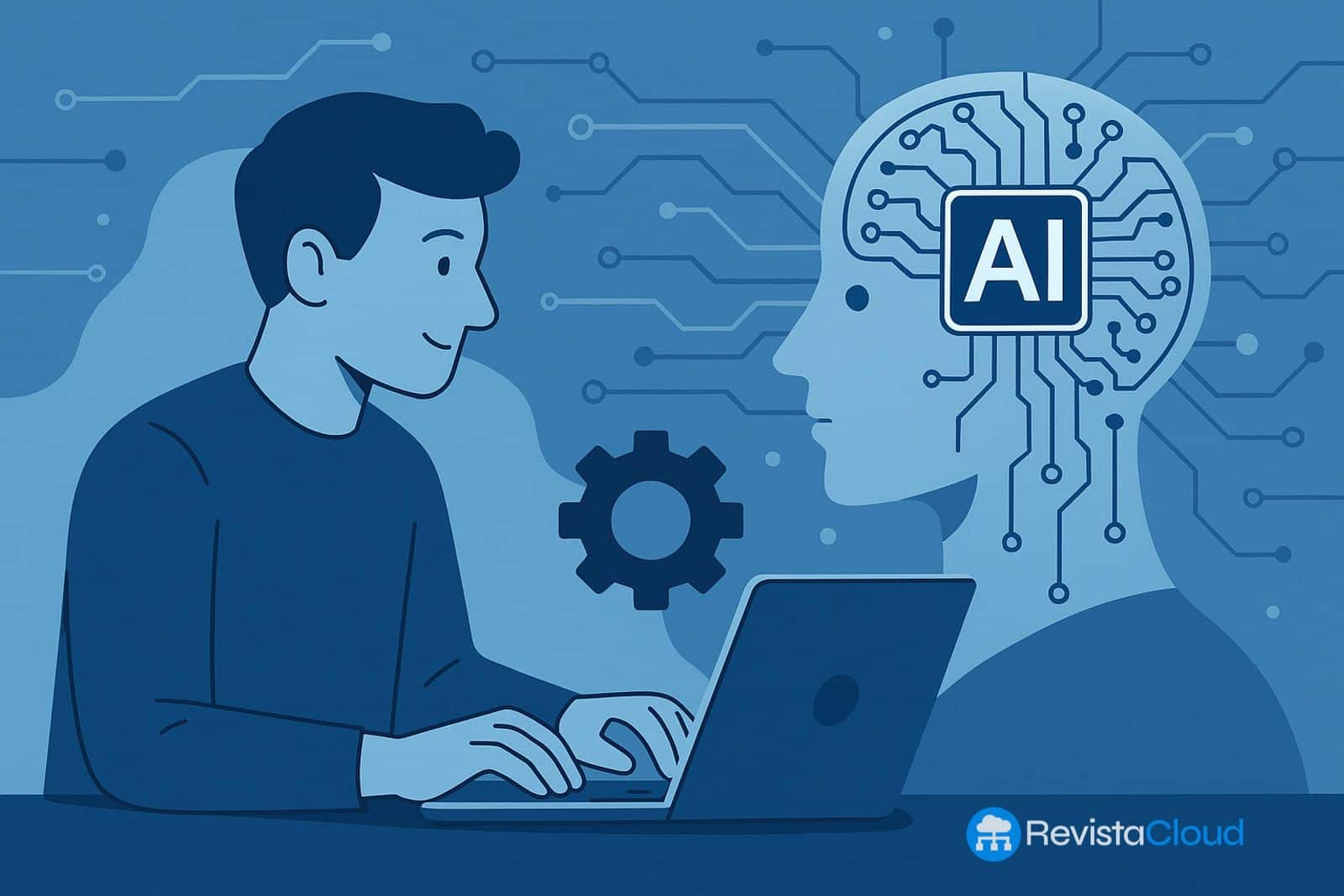Digital transformation and the massive emergence of artificial intelligence are reshaping the labor market. However, rather than eliminating skilled jobs, they are increasing the demand for profiles with digital competencies. The key is to adapt, train, and understand that AI is a tool, not a substitute.
The shortage of digital skills has become one of the major challenges in the global labor market. As technologies evolve at an unprecedented pace—especially since the emergence of generative AI models like ChatGPT, DeepSeek, Gemini, or Claude—, companies across all sectors are reporting difficulties in finding qualified talent who can work with data, automate processes, or lead technological initiatives.
But how do we respond to this skills gap in a context where technology is changing faster than training programs?
AI won’t eliminate jobs, but it will transform them
There is a misconception, fueled by alarming headlines, that artificial intelligence will replace millions of workers in the coming years. While it is true that it will automate repetitive or low-value tasks, the reality is more nuanced. AI is redefining roles, not eliminating them.
For example, programmers will not disappear. On the contrary: they will be more necessary than ever, but with a different focus. Instead of writing every line of code from scratch, developers will use AI assistants like GitHub Copilot or CodeWhisperer to generate functional blocks, allowing them to focus on architecture, design, and critical review. This will enhance their productivity and improve software quality.
The same applies in fields such as digital marketing, customer service, or project management. AI does not diminish human value; it enhances it. But it demands new skills.
Which digital skills are now essential?
According to various reports—from the European Union, the World Economic Forum, and LinkedIn—these skills are currently among the most in demand:
- Data literacy: the ability to read, interpret, and draw conclusions from large volumes of information.
- Automation and AI analysis: knowing tools that apply AI for specific tasks, from Excel with predictive models to generative AI platforms.
- Cybersecurity and privacy: a critical priority in the data era.
- Programming and software development: with languages like Python, JavaScript, or SQL.
- Designing digital experiences and understanding UX/UI concepts.
- Critical thinking and problem-solving, often in hybrid and global work environments.
The good news is that many of these skills can be acquired through accessible training, both formal and self-directed, on platforms like Coursera, edX, LinkedIn Learning, or even subsidized public programs.
AI as an ally for learning and working
Paradoxically, the artificial intelligence that generates fear can also be the solution to closing the skills gap. Tools like ChatGPT, Copilot, or Perplexity enable anyone with internet access to obtain technical explanations, resolve programming questions, or accelerate learning processes.
Moreover, AI models allow for personalized training, adapting content to the student’s level and pace. Universities and training centers are already beginning to implement AI-based solutions for virtual tutoring, automated grading of exercises, and generating training pathways.
Digital literacy, defined as the ability to interact critically with technology, should be a priority at all educational levels, from schools to adult continuing education.
A joint effort: companies, governments, and citizens
Overcoming the shortage of digital skills requires a collective strategy:
- Companies should invest in reskilling and upskilling their workforce by providing internal training or supporting external training programs.
- Governments should expand the public offering of digital training, promote STEM programs, and reduce barriers to digital access.
- Workers and professionals should adopt a lifelong learning mindset, aware that change will be constant.
Conclusion: it’s not about competing with AI, but knowing how to use it
The real answer to the shortage of digital skills is not to halt technological advancement but to accelerate humanity’s ability to adapt and learn. In this scenario, artificial intelligence is not the enemy: it’s a powerful tool that, when used well, can democratize access to knowledge and enable millions of people to participate actively in the digital economy.
The future belongs to those who learn to build it, not to those who fear it.

